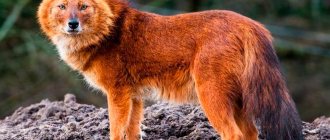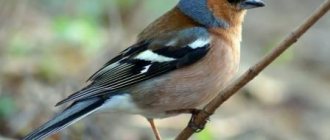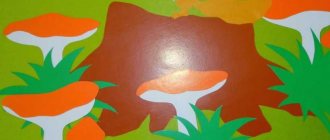Birds
The large territory of the country is conducive to the settlement of various natural areas by all kinds of birds. About 100 species are listed in the KKRF. Many of them are common in national parks, game reserves and nature reserves.
black crane
Most black cranes nest in the country. The birds form several populations, whose habitats extend from the Central Siberian Plateau to the Sikhote-Alin.
black crane
The number of black cranes around the world is about 11,000. They feed on a variety of foods - both animal and plant foods. They prefer swampy areas and woody vegetation.
The population of black cranes is most actively threatened by human economic activities in the habitat areas of these birds. They migrate to Japan, where living conditions are quite good, but epidemics occur regularly.
Interesting fact : the black crane is the least studied among its relatives. The species was discovered only in 1974.
Siberian Crane
The Siberian Crane (white crane) is distributed exclusively in Russia, and in the form of two separate populations - eastern and western. They are very demanding of living conditions and prefer an aquatic lifestyle. Because of this, maintaining the appearance is quite difficult. The number of West Siberian Siberian Cranes is 20 individuals, and the total number in the world is up to 3000.
Siberian Crane
Difficulties also arise during migrations. The birds head to China, where the areas are too urbanized - the swamps are dried up, the land is used for agriculture. In order to preserve the population, ornithologists from different countries, including the Russian Federation, are working together on the special project “Sterkh” - they are looking for new ways to restore the number of birds.
Steppe Harrier
The steppe harrier is a relatively small migratory bird. Distributed in Central Asia and Eastern Europe. Belongs to the predators. Prefers natural areas such as steppe, forest-steppe and semi-deserts.
Steppe Harrier
Birds often move within their range, so it is difficult to determine their numbers in the Russian Federation. The number of individuals in the world is about 40 thousand. The species is considered rare and endangered.
Steppe harriers have several natural enemies (eagles, imperial birds). Also, significant damage to their habitats is caused by human influence - the destruction of vegetation in meadows and thickets of bushes in the steppe. The total number of birds in Russia is about 5000.
White seagull
Ivory gulls make nests on the sea coasts of the Arctic Ocean. The only representatives of their kind. The exact number of individuals has not been established, as have the reasons for the decline in the species. Currently, the ivory gull is at low risk of extinction, but still needs protection.
White seagull
Possible factors negatively affecting the population are global warming, illegal hunting, unfavorable environmental conditions. The diet of seagulls consists of crustaceans and fish.
Black-throated Loon
The black-throated loon is a member of the loon genus. Birds live in the northern part of Russia. They prefer to build nests in reservoirs, as well as in the tundra zone. Lately, loons have noticeably moved north.
Black-throated Loon
This was influenced by human activity - fishing and actively developing tourism in the coastal zone. The increase in the number of birds is hampered by predators that actively hunt for their eggs. Loons are also often caught in fishing nets.
Insects
Insects form the most important link in the food chain and represent the most numerous group of animals. Several tens of thousands of their varieties are common in Russia. About 100 species are listed in the KKRF.
Stag beetle
The largest beetle within Europe. In our country, it is often found on European territory (including in the Belgorod and Voronezh regions). Beetles feed on bark, wood, nectar, dew, etc. Recently, population declines have been observed everywhere and the reason for this is human forestry activities.
Stag beetle
Interesting fact : the stag beetle is interesting for collectors who collect individuals in immoderate quantities.
Smooth bronze
The smooth bronzer
The smooth bronzer lives in the central part of the country. Insects prefer old forests with large trees. They feed on tree sap and are sometimes found on fruits and flowers. Despite the lack of accurate data, scientists believe that the number of beetles is declining due to the destruction of forests and old trees.
Amphibians
There are only about 30 species of amphibians in Russia. Of these, about a third are listed in the Red Book and are endangered. At the same time, amphibians bring enormous benefits by destroying insects that carry diseases and pests.
Triton Karelina
One of 6 species of the genus newts, found on the Black Sea coast and in the mountains of the Crimean Peninsula. The KKRF is listed as a species with an uncertain status. It is protected in the Caucasus Nature Reserve (about 200 individuals). Population numbers are declining due to the draining of water bodies.
Triton Karelina
Reed toad
In the country, the reed toad is found in the Kaliningrad region. The risk of extinction of the species is minimal, but human activity has a negative impact on the population. The amphibian is characterized by a variety of habitat conditions. It can live both in dry, warm areas and on wet coasts. The average density of the species is up to 10 individuals per hectare.
Reed toad
Ussuri clawed newt
Distributed in the Far East of the country, where it inhabits coniferous and mixed forests. It feeds on mollusks and insects. The main thing for this species of newts is the presence of suitable living conditions. It needs moisture, coolness and shaded areas.
Ussuri clawed newt
The species' abundance is assessed as low, with a slight increase in some areas. Protected in several nature reserves.







